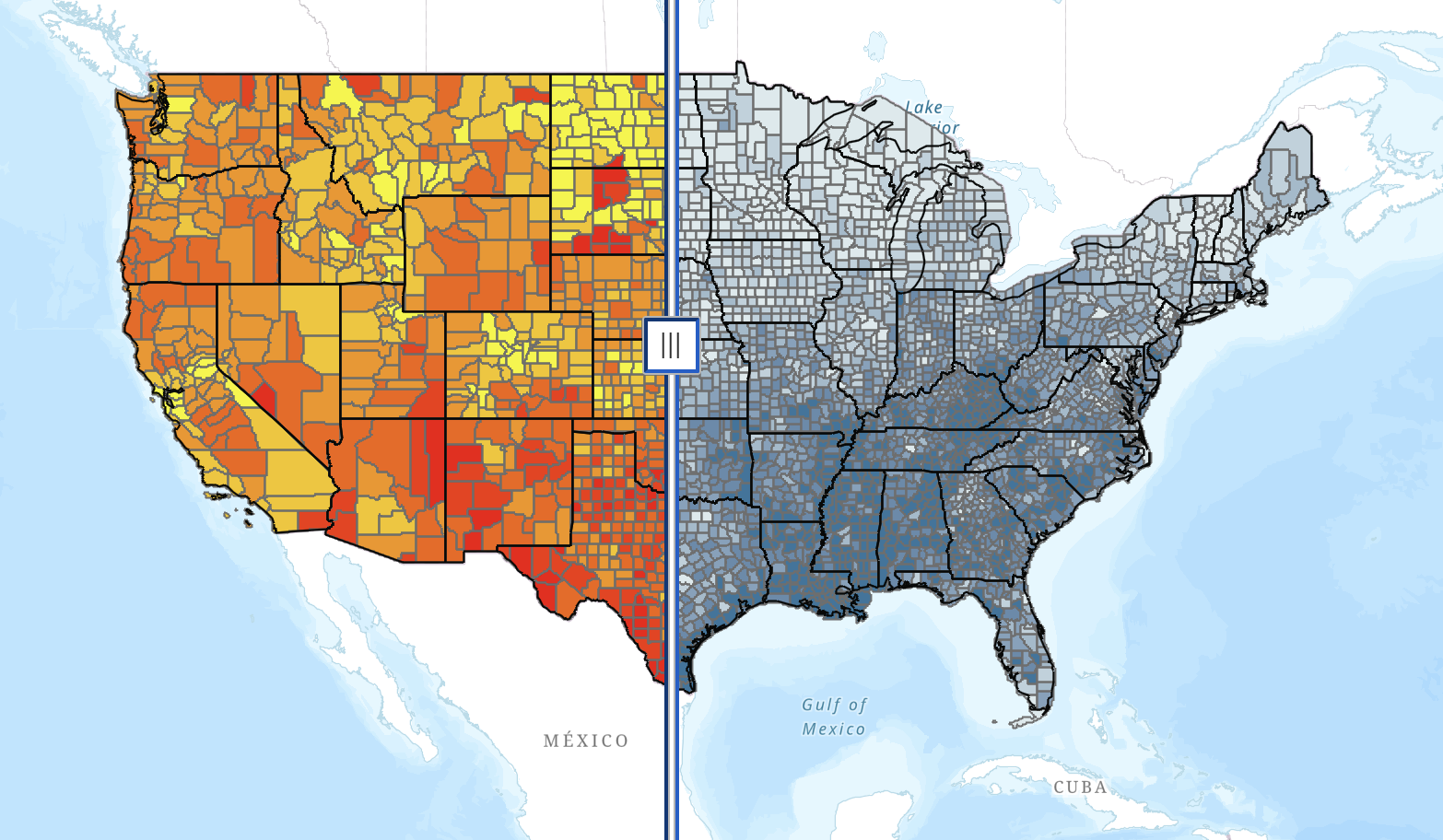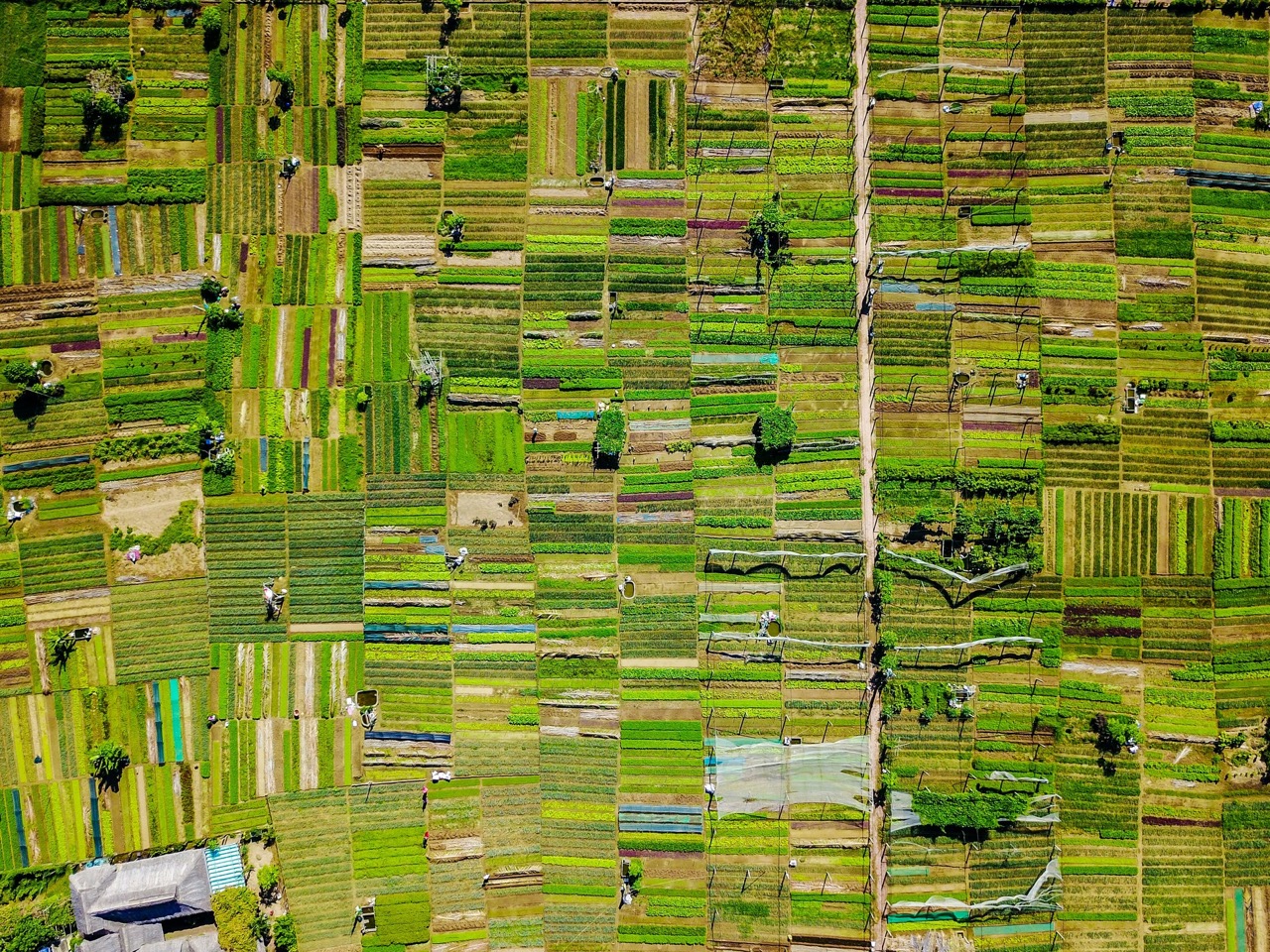November 1st marked the beginning of Native American Heritage Month, situated in the middle of a season when many people are beginning to come together over food. As celebratory of a time as this may be for so many Americans, coming together with friends and family over hearty meals, it is important for us to acknowledge the complex history and current state of food access on Indigenous reservations.
For millennia, Native food systems nourished communities and cultures. From farming to fishing to harvesting wild rice, these food traditions are distinct, diverse and rich, molded and shaped by the unique geographies in which various indigenous communities live.
Many of the foods eaten today solely originated in the Americas. These Native American ingredients include beans, corn, cacao, vanilla, tomatoes, potatoes, squash, and chilies.
.png)
Beginning in the 1800s, federal policies displaced Indigenous communities- often on lands unfamiliar to them, and without the farming resources they were promised. The Cherokee Nation is just one of the Indigenous tribes affected by the troubled history of colonization. The Cherokee Nation’s first contact with European colonizers transpired in 1540 with Hernando DeSoto’s exploration of the Southeastern portion of North America, initiating a long pattern of erasing Cherokee culinary tradition. The erasure worsened when the Cherokee people were displaced from their lands and sent to reservations due to a number of treaties in 1835. In new and unfamiliar territories, the Cherokee were not given adequate resources to preserve and continue their traditional food systems. They had to depend on government rations, which resulted in a cycle of food insecurity that has increased dependency on food distribution programs even in the present day. The federal government’s food distribution programs– which are marked by inconsistent access to low-quality, highly processed food– drastically increased the prevalence of diabetes and correlated heart disease in Indigenous communities.
Farmlink is working with our partners at the Cherokee Nation alongside brands like Primal Kitchen and Land O’Lakes to alleviate the effects of the historic and ongoing pattern of marginalization and food insecurity. Primal Kitchen recently stated:
"Our donation partner, The Farmlink Project, continues to serve residents of the Cherokee Nations by providing nutritious, real food. This emerging project empowers these communities, sourcing from farmers with overstock, aging inventory, and donations. We are proud to say that this year Primal Kitchen has supplied The Farmlink Project with almost 40,000 lbs of our goods to these Nations.”
Farmlink is also currently collaborating with Land O’Lakes to conduct a survey with Indigenous nations about infrastructural support needed in reservations. As part of this effort, Land O’Lakes worked with Farmlink to confirm contacts and capacity in Indeginous reservations in the West Coast. Improvements in infrastructure, specifically refrigeration units, allows communities to regain control over food quality, storage, and distribution.
We hope that these efforts and this Indigenous people’s month serve as a reminder that the systemic problems created by historical colonization can be solved by the restoration of Indigenous communities’ autonomy.
< Back
November 1st marked the beginning of Native American Heritage Month, situated in the middle of a season when many people are beginning to come together over food. As celebratory of a time as this may be for so many Americans, coming together with friends and family over hearty meals, it is important for us to acknowledge the complex history and current state of food access on Indigenous reservations.
For millennia, Native food systems nourished communities and cultures. From farming to fishing to harvesting wild rice, these food traditions are distinct, diverse and rich, molded and shaped by the unique geographies in which various indigenous communities live.
Many of the foods eaten today solely originated in the Americas. These Native American ingredients include beans, corn, cacao, vanilla, tomatoes, potatoes, squash, and chilies.
.png)
Beginning in the 1800s, federal policies displaced Indigenous communities- often on lands unfamiliar to them, and without the farming resources they were promised. The Cherokee Nation is just one of the Indigenous tribes affected by the troubled history of colonization. The Cherokee Nation’s first contact with European colonizers transpired in 1540 with Hernando DeSoto’s exploration of the Southeastern portion of North America, initiating a long pattern of erasing Cherokee culinary tradition. The erasure worsened when the Cherokee people were displaced from their lands and sent to reservations due to a number of treaties in 1835. In new and unfamiliar territories, the Cherokee were not given adequate resources to preserve and continue their traditional food systems. They had to depend on government rations, which resulted in a cycle of food insecurity that has increased dependency on food distribution programs even in the present day. The federal government’s food distribution programs– which are marked by inconsistent access to low-quality, highly processed food– drastically increased the prevalence of diabetes and correlated heart disease in Indigenous communities.
Farmlink is working with our partners at the Cherokee Nation alongside brands like Primal Kitchen and Land O’Lakes to alleviate the effects of the historic and ongoing pattern of marginalization and food insecurity. Primal Kitchen recently stated:
"Our donation partner, The Farmlink Project, continues to serve residents of the Cherokee Nations by providing nutritious, real food. This emerging project empowers these communities, sourcing from farmers with overstock, aging inventory, and donations. We are proud to say that this year Primal Kitchen has supplied The Farmlink Project with almost 40,000 lbs of our goods to these Nations.”
Farmlink is also currently collaborating with Land O’Lakes to conduct a survey with Indigenous nations about infrastructural support needed in reservations. As part of this effort, Land O’Lakes worked with Farmlink to confirm contacts and capacity in Indeginous reservations in the West Coast. Improvements in infrastructure, specifically refrigeration units, allows communities to regain control over food quality, storage, and distribution.
We hope that these efforts and this Indigenous people’s month serve as a reminder that the systemic problems created by historical colonization can be solved by the restoration of Indigenous communities’ autonomy.
National Native American Heritage Month
November 1st marked the beginning of Native American Heritage Month, situated in the middle of a season when many people are beginning to come together over food. As celebratory of a time as this may be for so many Americans, coming together with friends and family over hearty meals, it is important for us to acknowledge the complex history and current state of food access on Indigenous reservations.
For millennia, Native food systems nourished communities and cultures. From farming to fishing to harvesting wild rice, these food traditions are distinct, diverse and rich, molded and shaped by the unique geographies in which various indigenous communities live.
Many of the foods eaten today solely originated in the Americas. These Native American ingredients include beans, corn, cacao, vanilla, tomatoes, potatoes, squash, and chilies.
.png)
Beginning in the 1800s, federal policies displaced Indigenous communities- often on lands unfamiliar to them, and without the farming resources they were promised. The Cherokee Nation is just one of the Indigenous tribes affected by the troubled history of colonization. The Cherokee Nation’s first contact with European colonizers transpired in 1540 with Hernando DeSoto’s exploration of the Southeastern portion of North America, initiating a long pattern of erasing Cherokee culinary tradition. The erasure worsened when the Cherokee people were displaced from their lands and sent to reservations due to a number of treaties in 1835. In new and unfamiliar territories, the Cherokee were not given adequate resources to preserve and continue their traditional food systems. They had to depend on government rations, which resulted in a cycle of food insecurity that has increased dependency on food distribution programs even in the present day. The federal government’s food distribution programs– which are marked by inconsistent access to low-quality, highly processed food– drastically increased the prevalence of diabetes and correlated heart disease in Indigenous communities.
Farmlink is working with our partners at the Cherokee Nation alongside brands like Primal Kitchen and Land O’Lakes to alleviate the effects of the historic and ongoing pattern of marginalization and food insecurity. Primal Kitchen recently stated:
"Our donation partner, The Farmlink Project, continues to serve residents of the Cherokee Nations by providing nutritious, real food. This emerging project empowers these communities, sourcing from farmers with overstock, aging inventory, and donations. We are proud to say that this year Primal Kitchen has supplied The Farmlink Project with almost 40,000 lbs of our goods to these Nations.”
Farmlink is also currently collaborating with Land O’Lakes to conduct a survey with Indigenous nations about infrastructural support needed in reservations. As part of this effort, Land O’Lakes worked with Farmlink to confirm contacts and capacity in Indeginous reservations in the West Coast. Improvements in infrastructure, specifically refrigeration units, allows communities to regain control over food quality, storage, and distribution.
We hope that these efforts and this Indigenous people’s month serve as a reminder that the systemic problems created by historical colonization can be solved by the restoration of Indigenous communities’ autonomy.
.png)
.png)





%202.jpg)
.svg)
.svg)
.svg)